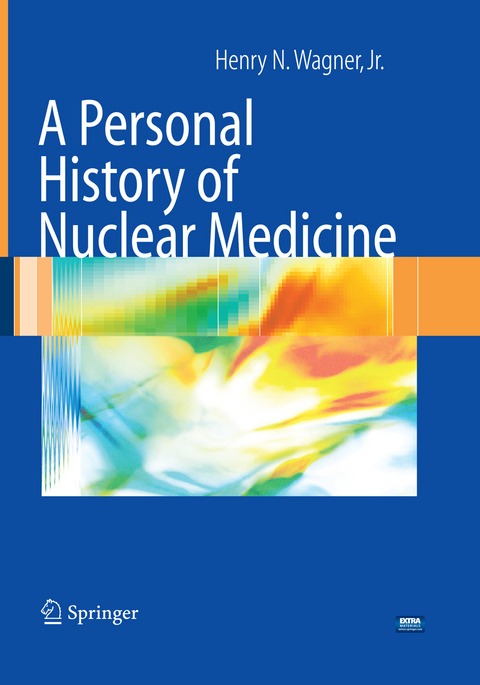
A Personal History of Nuclear Medicine
Springer London Ltd (Verlag)
978-1-4471-6824-9 (ISBN)
Each year, at the annual meeting of the Society of Nuclear Medicine, Henry Wagner summarizes his view of principal advances in the ? eld. In A Personal History of Nuclear Medicine, he brings the same insight to the ? fty years he has practiced, preached and breathed nuclear medicine. That same ? fty years spans the era in which radioactivity has been harnessed to provide exquisite maps of physiologic function in the living human body. Thus, the book brings the perspective of an insider, whose own contributions have been particularly in? uential: leader of a premier program in education and research; founding member of the American Board of Nuclear Medicine; proponent of int- national cooperation and the World Congress, and much more. Because of Henry’s positions and desire to meet and know colleagues throughout the world (he and his wife Anne are most gracious hosts and visitors) this autobiography is also a story of the major ? gures who grew the ? eld of nuclear medicine and made the discipline into a coherent one. The book also re? ects Henry’s personality: his candor and un? inching way of telling it the way he thinks it is, his punctuated use of aphorisms (some of his own making), his deep understanding of who he is, and an innocent delight in many accomplishments. Some years ago, I suggested that Henry was a constructive troublemaker; someone who goaded us out of accepted wisdom into new, and sometimes outrageous, thinking.
A pioneer in nuclear medicine and past president of the Society of Nuclear Medicine, Professor Henry N. Wagner Jr., MD has spent nearly five decades helping to define and promote the specialty. His groundbreaking work in the applications of nuclear medicine to pulmonary and coronary artery disease and his studies of brain chemistry with radio-labelled tracers have led to significant advances in these fields. Wagner is the director of the Division of Radiation Health Sciences at Johns Hopkins University in Baltimore, where he has worked since 1958. He is a professor emeritus of radiology and radiological sciences at the Johns Hopkins School of Medicine and a professor of environmental health sciences at the School of Hygiene and Public Health. A prolific researcher and writer, Wagner is author or co-author of more than 800 publications, including peer-reviewed journal articles, books and chapters. He is a member of several editorial boards and many medical and radiological societies, and an honorary member of the British Institute of Radiology (2000).
Survival of the Luckiest.- So You Want To Be a Doctor.- First Taste of Research.- Medical School and House Staff Days.- The National Institutes of Health.- A New Medical Specialty.- The Early Days.- The Thyroid Paves the Way.- The Breakthrough to Lung Scanning.- Computers in Nuclear Medicine.- From the Lungs to the Heart.- Growth Out of Control.- Molecular Communication.- The Fight Against Infectious Disease.- A New Approach to Disease.- The Genetic Revolution.
| Erscheinungsdatum | 23.03.2017 |
|---|---|
| Zusatzinfo | IX, 299 p. |
| Verlagsort | England |
| Sprache | englisch |
| Maße | 178 x 254 mm |
| Themenwelt | Medizin / Pharmazie ► Medizinische Fachgebiete ► Onkologie |
| Medizinische Fachgebiete ► Radiologie / Bildgebende Verfahren ► Nuklearmedizin | |
| Medizinische Fachgebiete ► Radiologie / Bildgebende Verfahren ► Radiologie | |
| Studium ► Querschnittsbereiche ► Geschichte / Ethik der Medizin | |
| Naturwissenschaften ► Physik / Astronomie ► Hochenergiephysik / Teilchenphysik | |
| Schlagworte | atoms • biopsy • Diagnosis • History • Imaging • Molecular Imaging • Nuclear Medicine • Positron Emission Tomography |
| ISBN-10 | 1-4471-6824-0 / 1447168240 |
| ISBN-13 | 978-1-4471-6824-9 / 9781447168249 |
| Zustand | Neuware |
| Haben Sie eine Frage zum Produkt? |
aus dem Bereich


